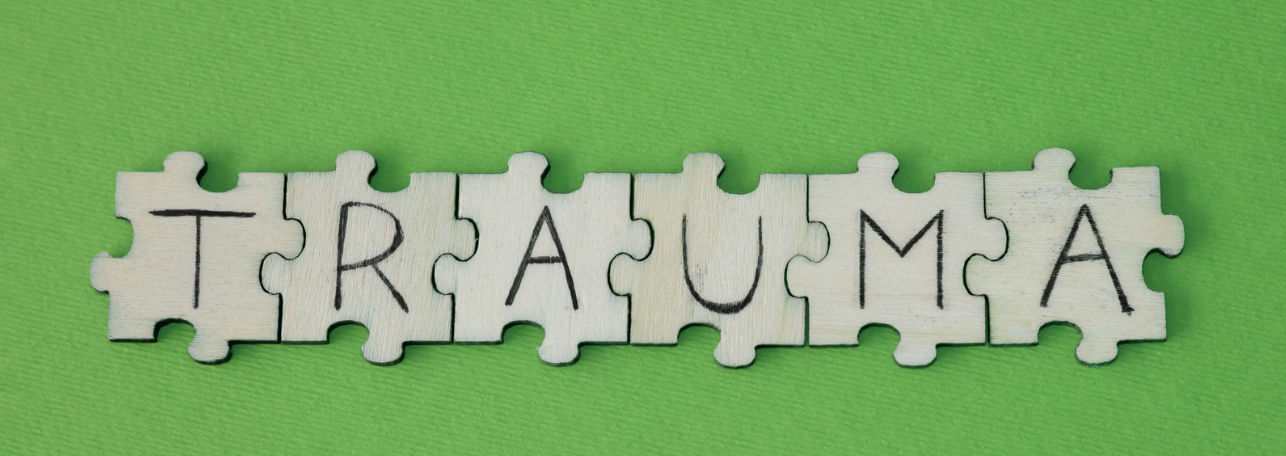A woman I treated often described it as the key “roadblock” to her recovery, a seemingly larger-than-life barrier that prevented her from making it to the other side of her eating disorder. She could envision what awaited her, a life rich with wellness and meaning, but she couldn’t see a way around this boulder lying in her path.
The roadblock she described was her experience of trauma as a young person. She had come to live with post-traumatic stress disorder (PTSD) for so long that it had started to shape what she saw as possible for herself, including recovery from her binge eating disorder (BED). The woman also recognized that her PTSD had caused her to alienate the people she loved the most, and that they no longer felt capable of supporting her. By the time I met her, despite having a family who wanted desperately to connect, she felt alone and entrenched in her eating disorder.
It is not uncommon for someone with an eating disorder to also suffer from PTSD. Studies in this area vary in terms of how often the illnesses overlap, but the National Women’s Study, found that among people with bulimia nervosa, 37% met the criteria for PTSD at some point during their lifetimes. Across studies, people with eating disorders are found to have higher than average rates of PTSD.
Like the woman described, PTSD can actually function as a barrier to eating disorder recovery in some cases. Many professionals who treat eating disorders recognize that untreated PTSD may be a missing link in long-term recovery. This could be in part because of how the symptoms of the eating disorder can function to help reduce or minimize, for a short time, the symptoms of PTSD. And PTSD symptoms can be so distressing that, in one study, people with PTSD indicated that they would be willing to give up over 13 years of their lives to stop them.
When faced with so much pain, loved ones can feel helpless to support someone with an eating disorder and PTSD. If you are watching someone you love caught in a vicious loop, you might feel that there is no answer. If you are feeling defeated, frightened, or overwhelmed, consider what you can do.
1. Recognize the signs that you may be suffering from traumatic stress as well.
If you experienced the traumatic events that impacted your loved one as well, you might be dealing with your own feelings related to the event. Even if your own thoughts and feelings about the situation don’t appear as significant as your loved one’s, it’s possible that it is having an impact. Further, those close to someone who has experienced a trauma can develop PTSD through a process called vicarious traumatization. This means that if your loved one has shared with you details of the event, you might develop your own symptoms. Be alert to changes in your mood, difficulty concentrating, avoidance of things that remind you of what you have heard, and even physical symptoms like headaches or heartburn. If you think you may be experiencing traumatic stress, don’t hesitate to seek out your own support.
2. Encourage your loved one to seek out professional help.
The great news is that effective treatments exist for PTSD. Helping your loved one connect with professionals and treatment options that can address the disorder is a true gift. It can often be difficult to find professionals who are willing and competent to treat both eating disorders and PTSD, so utilize resources like NEDA to find providers. Be sure to ask questions at the forefront (e.g. “What is your approach to working with PTSD symptoms?”) and ensure that the provider recognizes that someone who is very compromised due to their eating disorder cannot effectively engage in many PTSD treatments yet. Finding professional resources importantly ensures that you are not trying to manage the disorders on your own, a situation that is likely to lead to burnout, and possibly resentment and worsening of the disorders.
3. Engage in supportive, active listening.
Oftentimes, someone with PTSD will avoid talking about the traumatic events. However, if your loved one does choose to talk with you, practice listening with openness and calmness. Avoid trying to solve a problem for them, and simply provide a compassionate ear. Also avoid trying to assign responsibility for aspects of the trauma, as this usually isn’t helpful. Sometimes we even have the urge to take responsibility ourselves, such as for not being able to prevent the trauma. It can often be helpful to process this with someone other than your loved one first. If you are struggling to know whether you are providing the type of listening they need, just ask.
4. Discuss with them how you can best support their journey.
Similarly, there are many ways that you can be supportive to your loved one, and the specific ways will be unique to them. Talk with them (and their treatment team, if they have one) about what you can do to assist the journey. For some people, helping them be aware of and react to triggers (e.g., places, scents, or sounds that remind them of the trauma) can be beneficial. Others want to be encouraged by you to face difficult situations without avoiding or escaping. Being part of the treatment process can be extremely helpful in navigating your own role.
5. Develop your own systems of support.
Caring for someone with PTSD and an eating disorder is trying work. It’s simply not the same experience as being an average parent, partner, or friend. It is important to attend to the other relationships in your life and to keep or develop self-care habits. Support groups can be an opportunity to connect, as can finding an activity or group in which to participate. Defeating PTSD and eating disorders requires strength, and building yours in the moments you can is crucial to long-lasting recovery.
Cusack, K., Jonas, D. E., Forneris, C.A., Wines, C., Sonis, J.,… Gaynes, B.N. (2016). Psychological treatments for adults with posttraumatic stress disorder: A systematic review and meta-analysis. Clinical Psychology Review, 43, 128–141. DOI: 10.1016/j.cpr.2015.10.003
Doctor, J., Zoellner, L., and Feeny, N. (2011) Predictors of health-related quality-of-life utilities among persons with posttraumatic stress disorder. Psychiatric Services, 62(3), 272-277. DOI: 10.1176/appi.ps.62.3.272
Mitchell, K.,Mazzeo, S., Schlesinger, M., Brewerton, T., and Smith, B. (2012) Comorbidity of partial and subthreshold PTSD among men and women with eating disorders in the National Comorbidity Survey-Replication Study. International Journal of Eating Disorders. 45(3), 307-315. DOI: 10.1002/eat.20965
Trottier, K., Monson, C., Wonderlich, S.A., an Olmsted, M. P. (2017) Initial findings from Project Recover: Overcoming co-occurring eating disorders and posttraumatic stress disorder through integrated treatment. Journal of Traumatic Stress, 30 (2), 173-177. DOI: 10.1002/jts.22176
Dr. Ashley Solomon is a licensed clinical psychologist and the Executive Director of Eating Recovery Center, Ohio in Cincinnati. She is committed to supporting individuals and families through the experience of an eating disorder. She believes that full recovery is possible and that all individuals deserve the opportunity to achieve it.






